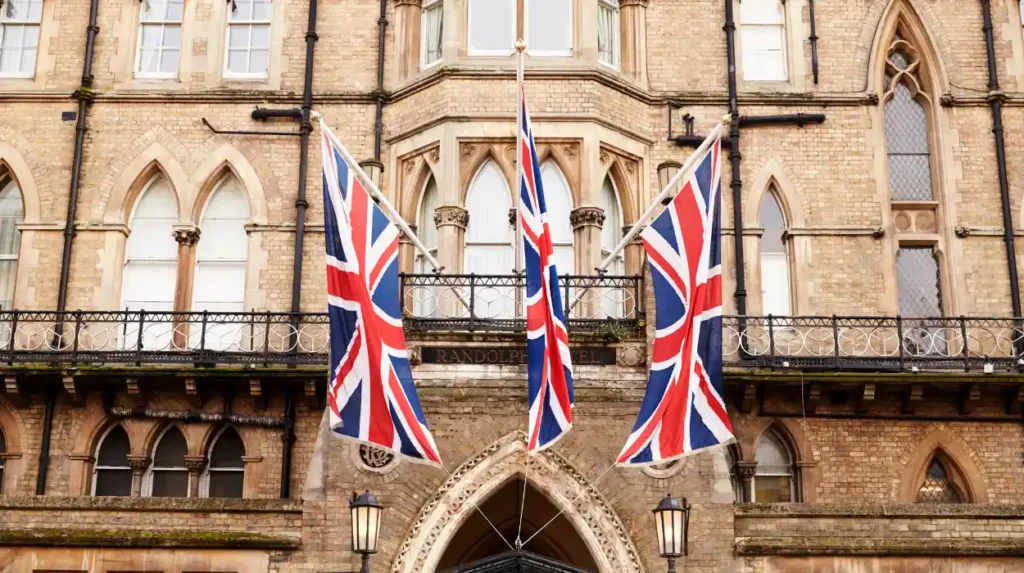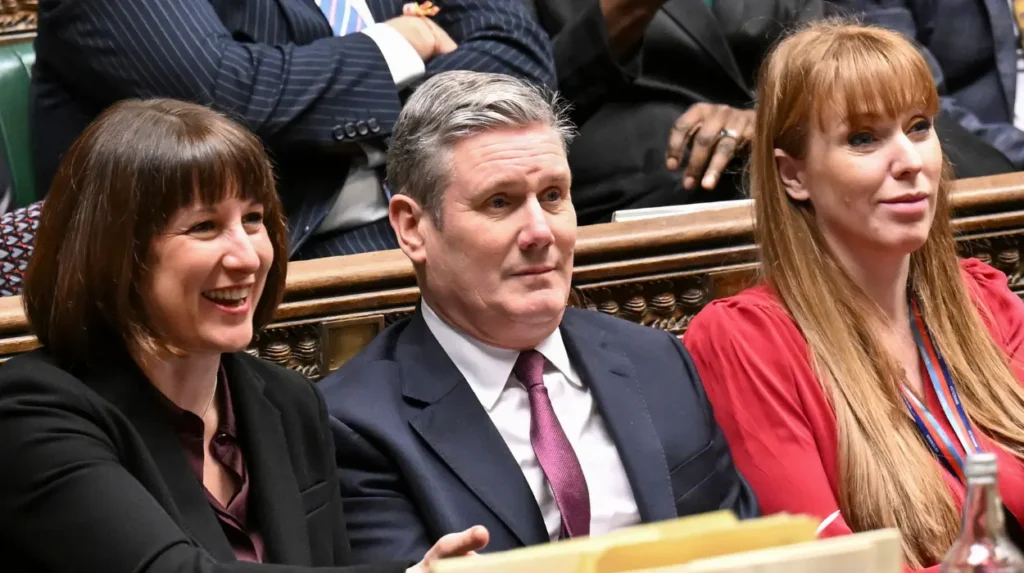The term left-wing politics refers to the group of different political philosophies that are adopted in the UK that focus to so great extent on social equality and egalitarianism and on the attention that the government can offer about welfare and economic regulations. Leftists tend to propose measures favorable to the underprivileged group in the population and demand that the economy redistribute the wealth to reduce social stratification and inequalities. The left parties in the UK are commonly related to the interests of the Scottish National Party (SNP), the Green Party, and the Labour Party. Labour is traditionally looked at as centre-left, arguing in favour of more government spending on services like the National Health Service and schools, and government intervention in the middle of lower-income groups. This is more left-wing and concentrates on social justice and the environment as opposed to the Green Party.
Left-wing politics in the UK have a long history, developed before the Chartists and trade unions. Creation of the welfare state is one of the most well-known left-wing accomplishments, which was achieved in the form of the Labour government and Clement Attlee, in the years after World War II. Left-wing politics in the UK have evolved to follow numerous approaches, from democratic socialism all the way to more radical action as manifested in protests and social movements.
Historical background of left-wing politics in the UK
Left-wing politics has a long history in the UK, stretching back to the radicalism of the mid-19th century when British leftists such as the League of the Just (1840) and the Marxist Communist League (1847) first introduced such concepts as communism, Marxism, and revolutionary socialism into the political life of the UK.
These were initial stirrings aiming to reverse the established social order, and their thinking was inspired by a revolution that had occurred in continental Europe. The Social Democratic Federation, founded in 1881, was one of the first explicitly Marxist parties in Britain. It marked the beginning of the organized Marxist politics of the country. Factions within the SDF resulted in the Socialist League further dividing over libertarian lines, in an organisation led by William Morris.
The political arena also had a presence of socialist and anarcho-based organisations that tended to be dismissive of collaborating with more institutionalised bourgeois parties such as the Liberals. Left-wing politics in the UK became more popular in the early 20th century, as a result of the fact that, during this period, the Labour Party was formed and aimed to represent the working class of the population and trade unions.
Social reforms and welfare policies pushed the Labour Party ahead of the Liberal Party as the principal left-of-center party in Britain. Marxist-Leninist notions were adopted later on by British communists after the Russian Revolution of 1917 and the prominent progress of the far-left world. During this period, there was an ideological difference within the communist movement between Stalinists and Trotskyists.

Core principles of left-wing politics
Generally, the left-wing politics in the UK have the following tenets:
Equalizing social and environmental differences through the redistribution of opportunities and wealth is a key goal. This often involves increased spending on welfare, healthcare, and education, where taxes on the rich should be increased.
1. Government intervention
The left advocates a greater involvement of the state in economic management and provision of services to the population to ensure that citizens can access socially required resources such as good quality housing, universal healthcare (via the NHS), and quality education.
2. Welfare and social justice
The desire to unite and support the deprived groups in their need and the interest in justice is the force that drives the left-wing to provide them with the security of a robust social net and welfare.
3. Employee rights
The next principle is to empower the working-class populace through promotion of high wages, cooperative bids, and universal labor protection.
Key political parties in the UK are left
As of 2025, the main left-wing political parties in the UK are:
1. The Labour Party
The most significant and powerful leftwing party in the UK. The Labour Party, founded in 1900, is described as centre-left and democratic socialism infused into its constitution. It promotes the growth of welfare, publicly, state provision, including the NHS, workers’ rights, and social fairness, and governmental Indulgence in the economy. Under the present leadership of Keir Starmer, the party has 412 seats in the House of Commons.
2. The Green Party, England and Wales
Greens are considerably left of the Labour Party on most social and environmental matters, particularly on social equality, sustainability, and global warming. It currently has 65000 members as of June 2025 and 4 MPs.
3. National Party of Scotland (SNP)
a popular centre-left party in Scotland which makes a case for Scottish independence but also incorporates left-wing social policies. It is composed of 59,000 members with nine MPs. Although it plays a role largely in Scotland, it influences left-wing politics in the UK.
4. Additional left-wing parties represented in parliament
- Northern Ireland’s Social Democratic and Labour Party (SDLP)
- Plaid Wales’s Cymru Wales
- Northern Ireland’s Sinn Féin (which does not hold Westminster seats)
5. Smaller left-wing parties and the far left
Various Trotskyist and Marxist organizations are among them, as are the Communist Party of Britain, Socialist Party of Great Britain, and Socialist Labour Party. As a sign of resurgent left-wing activism, Jeremy Corbyn and Zarah Sultana recently revealed plans to start a new left-wing party that will lean left of Labour.

Left-wing economic policies and social justice
Among the main facets of their economic policy are:
1. Economic stability and growth
By focusing on sustainable and broad-based growth that benefits all communities, not just the wealthy, Labour seeks to restore economic stability through deliberate government action and commercial partnerships.
2. National wealth fund
In order to leverage public investment to draw in private investment and generate employment throughout the United Kingdom, they intend to create a £7.3 billion National Wealth Fund to invest in important industries like infrastructure, steel, renewable energy, and the automotive sector.
3. Infrastructure investment
With a focus on regional development and decentralization, a comprehensive ten-year infrastructure strategy is put forth to repair and upgrade housing, electricity, transportation, and digital networks.
4. Taxation and corporate environment
In order to attract corporate investment, Labour supports a stable and predictable tax system. This includes restoring business rates to promote high streets, encouraging workplace pension contributions, and capping corporation tax at 25% for the term of the parliament.
The role of the state in left-wing politics
In the UK, left-wing politics, the state has a significant role in forming a just and equal society. Advocates argue that to correct the imbalances introduced in society through free markets and to guarantee every citizen is under a safety net, the state needs to be involved. This involves managing the delivery of a large number of public services such as health and education, regulating industries, and championing the rights of workers. The role of the state is not limited to mere oversight and is also associated with direct participation in social welfare, economic planning.
Left-wing ideology views the main concern of the state as regulating the economy. To ensure that essential services such as transport, energy, and water remain accessible and affordable to all—not just a privileged few—it is common practice in left-wing ideology to advocate public ownership or control of critical infrastructure and utilities. The other imperative notion concerning the role of the state is social fairness. The government enacts policies and laws to fight prejudice and promote equality among the genders, races, and different classes.
It provides social housing, welfare packages, disability payments, unemployment payments, and so on, all of which are meant to protect the weak. Besides providing a low level of living quality, such policies are intended to reduce social marginalization and poverty.
Prominent left-wing figures in UK politics
Keir Starmer, Prime Minister and leader of the Labour Party since 2024, is one of the major figures in the present left-wing politics of the UK. During his tenure, the Labour Party has been able to present itself as a sensible centre-left outlet devoted to economic justice, social justice, and enhancing state services. Serving the purpose of uniting otherwise divided party factions and attracting working-class as well as middle-class electorates, the strategy pursued by Starmer would be a balance between progressive policies on one hand and broad appeal in the electorate on the other hand.
Jeremy Corbyn remains one of the most relevant left-wing voices in modern UK politics. Former Labour leader Corbyn, in 2015-2020, reoriented the party to a democratic-socialist point of view and activism of the grassroots. In 2025, he launched a new left-wing political movement whose aim was to fight corporate rule and achieve economic inequality. Large numbers of left-wing voters and activists in the UK concerned with social justice and anti-austerity positions are presently driven by the ideals of Corbyn.
Coming up as a stakeholder in the measures of promoting social justice within the labour context is Angela Rayner, who is the deputy prime minister and housing and community government secretary with the Labour Party. To overcome the inequality problem and to offer the poor households more living conditions, representatives of low-income families, she advocates for more binding house rules and community life. In terms of the economy, the Shadow Chancellor Rachel Reeves of Labour is well known as someone who possesses strong knowledge of the fiscal and economic matters. She is in favor of progressive taxation and increased public investment, with a priority on creating a more equitable economy and funding public services, and reducing poverty. The economic philosophy of Reeves is a crucial part of the strategy of Labour to fix regional inequality and recover the UK economy following the pandemic.
New stars such as Zarah Sultana, an independent MP who moved to Corbyn’s new movement, are on the left spectrum. Sultana is an example of a new breed of activists committed to waging a politics of grassroots struggle against such problems as corporate greed, poverty, and climate change.


